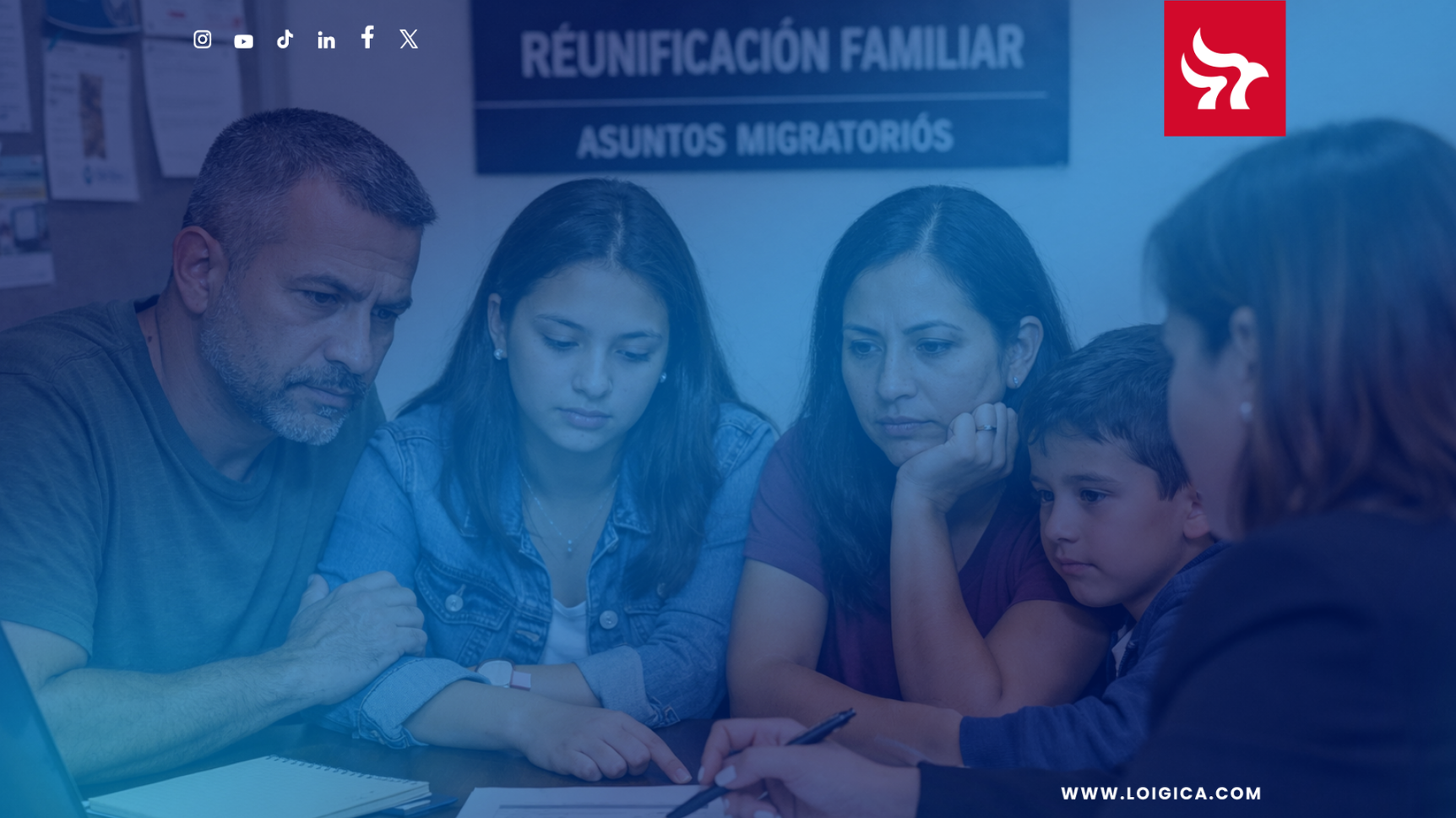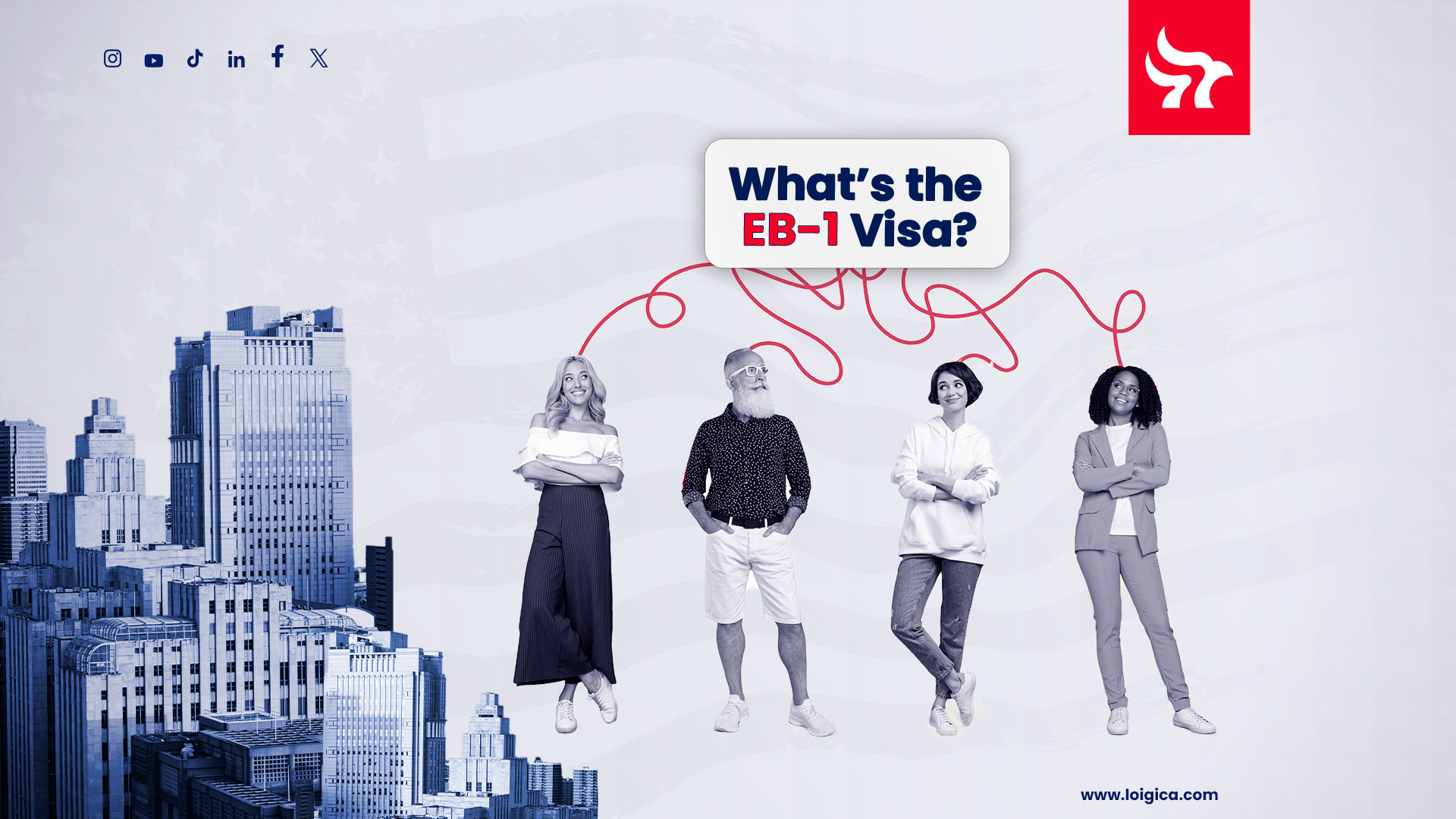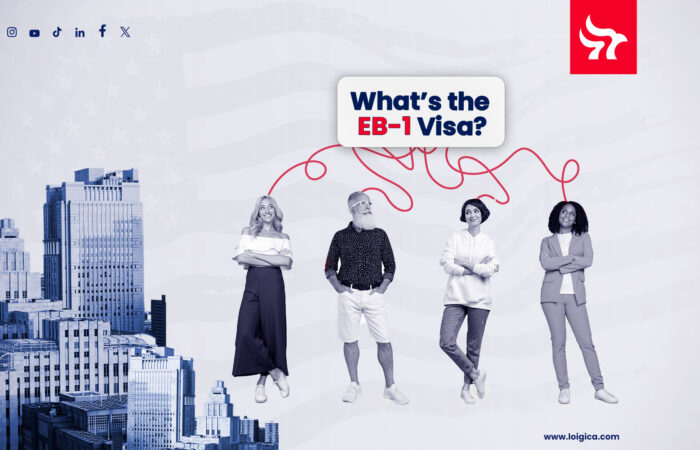In A Nutshell...
The EB-1 visa is a U. S. immigration option for individuals within the best professionals in their field of specialization, for highly recognized professors and researchers, or certain multinational managers and executives. It offers benefits like no labor certification requirement, potential self-application, and relatively quick processing times.
When it comes to selecting the type of visa you would like to consider for immigration into the United States, there are a variety of factors to consider. We’ve touched on pathways such as the H-1B, which requires a formal job offer, and the EB-5, which requires a significant investment in a business, among other visas. Today, we are going to dive into the EB-1 visa, which is a specific visa type within the larger EB visa category.
The EB-1 visa is a popular visa option for many professionals, such as individuals with extraordinary ability or outstanding professors and researchers. In fact, it is intended for individuals who are considered to be among the most accomplished in their field of expertise. However, it is important to note that the eligibility criteria are strict, and the application process can be complex. It is suggested to utilize the expertise of an immigration attorney to help increase your likelihood of application acceptance.
Categories within the EB-1 visa
So, who qualifies for the EB-1 visa? There are three categories within this visa family:
Extraordinary Ability (EB-1A)
The first category, EB-1A, is intended for individuals with extraordinary ability in the sciences, arts, education, business, or athletics, as demonstrated by sustained national or international acclaim. It requires extensive documentation of achievements and recognition as supporting evidence and proof of extraordinary ability.
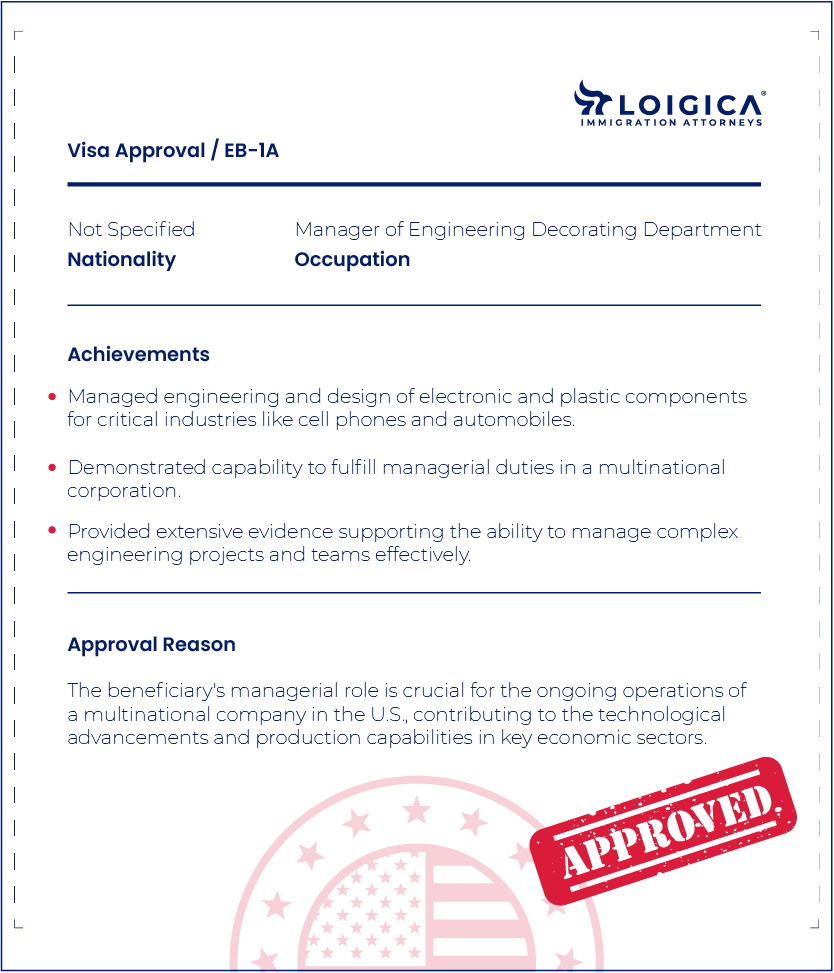
Outstanding Professors and Researchers (EB-1B)
The second category, EB-1B, is intended for outstanding professors and researchers who are recognized internationally for their achievements in a particular academic field. It requires a job offer from a U. S. employer and documentation of at least three years of experience in teaching or research.
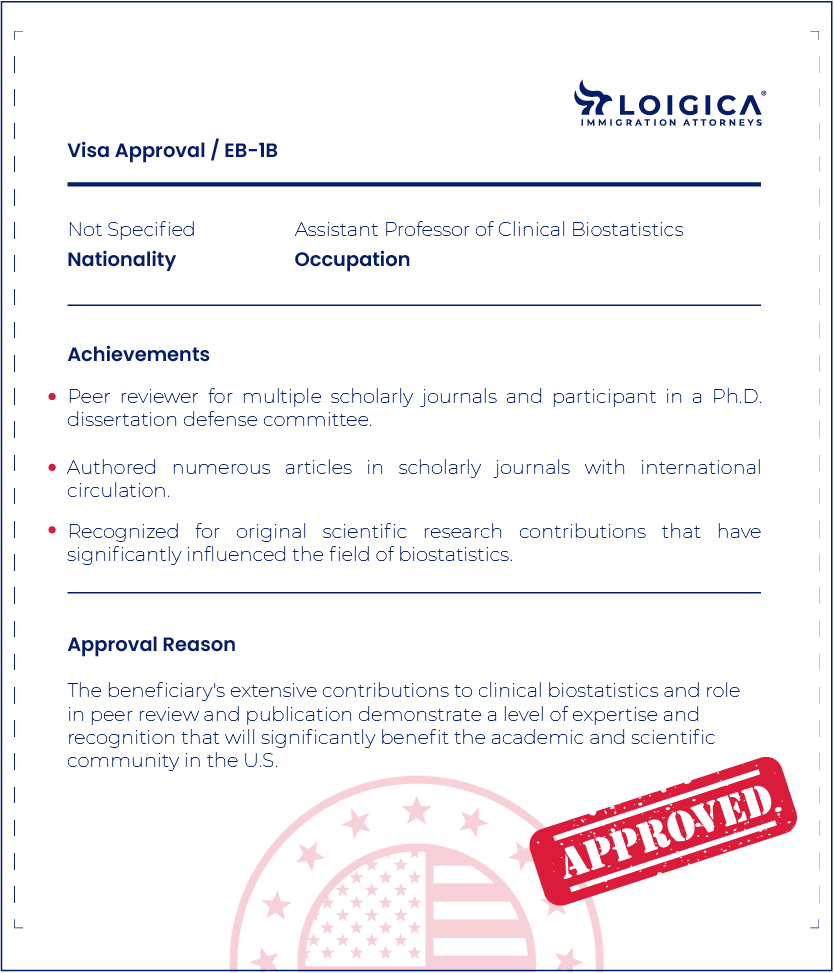
Multinational Managers and Executives (EB-1C)
The third category, EB-1C, is intended for multinational managers and executives transferring to the U. S. from a related foreign company. Requires a qualifying relationship between the U. S. employer and the foreign company, as well as a documented history of employment with the foreign company, and a job offer.
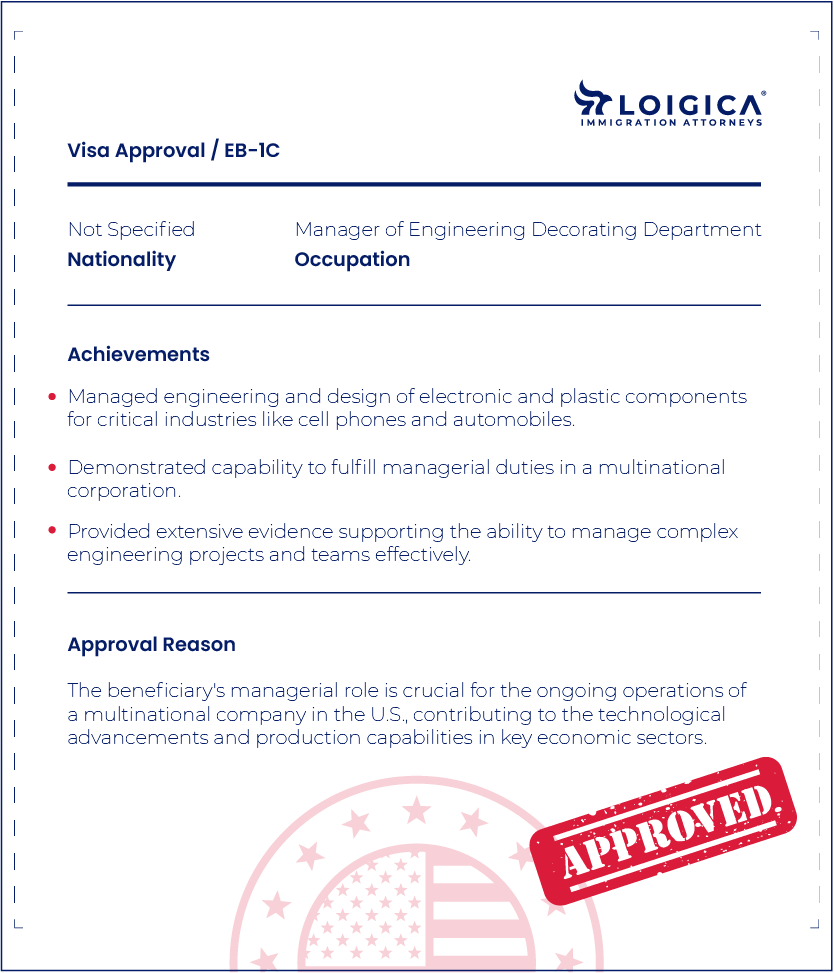
Advantages of the EB-1 visa
The EB-1 visa type has a few unique advantages, such as:
- No labor certification requirements. Unlike its peer employment visa categories, the EB-1 does not require a Department of Labor-issued labor certification. This can add to the expedited timeline that EB-1 visas typically enjoy.
- No job offer is necessary for some categories. The EB-1A (Extraordinary Ability) and EB-1B (Outstanding Professors and Researchers) categories do not require a job offer from a U.S. employer, making them available for self-application by qualified candidates.
- Current processing times. Countries have current priority dates assigned for EB-1 visas, which means there is little to no backlog for this category. This also makes the processing wait time typically shorter than for other visa types.
- Premium processing availability. If you are looking for something quicker than the times as mentioned above, you have additional options to help move things along. For an additional fee, the EB-1 is privy to an expedited processing time. This is not something that is standard for visa types, and it can significantly shorten a processing timeline.
- Path to Green Card. The EB-1 visa is a desirable visa that leads to lawful permanent residence (green card) within the United States. This provides recipients with a direct path to permanent residency for qualified applicants and their eligible family members.
If you are a foreign professional looking to obtain United States residency through a federal visa program, the EB–1 visa could be a fit for you.
Join our newsletter
All about immigration law, visas, news, interestings interviews and more.
Recomendados
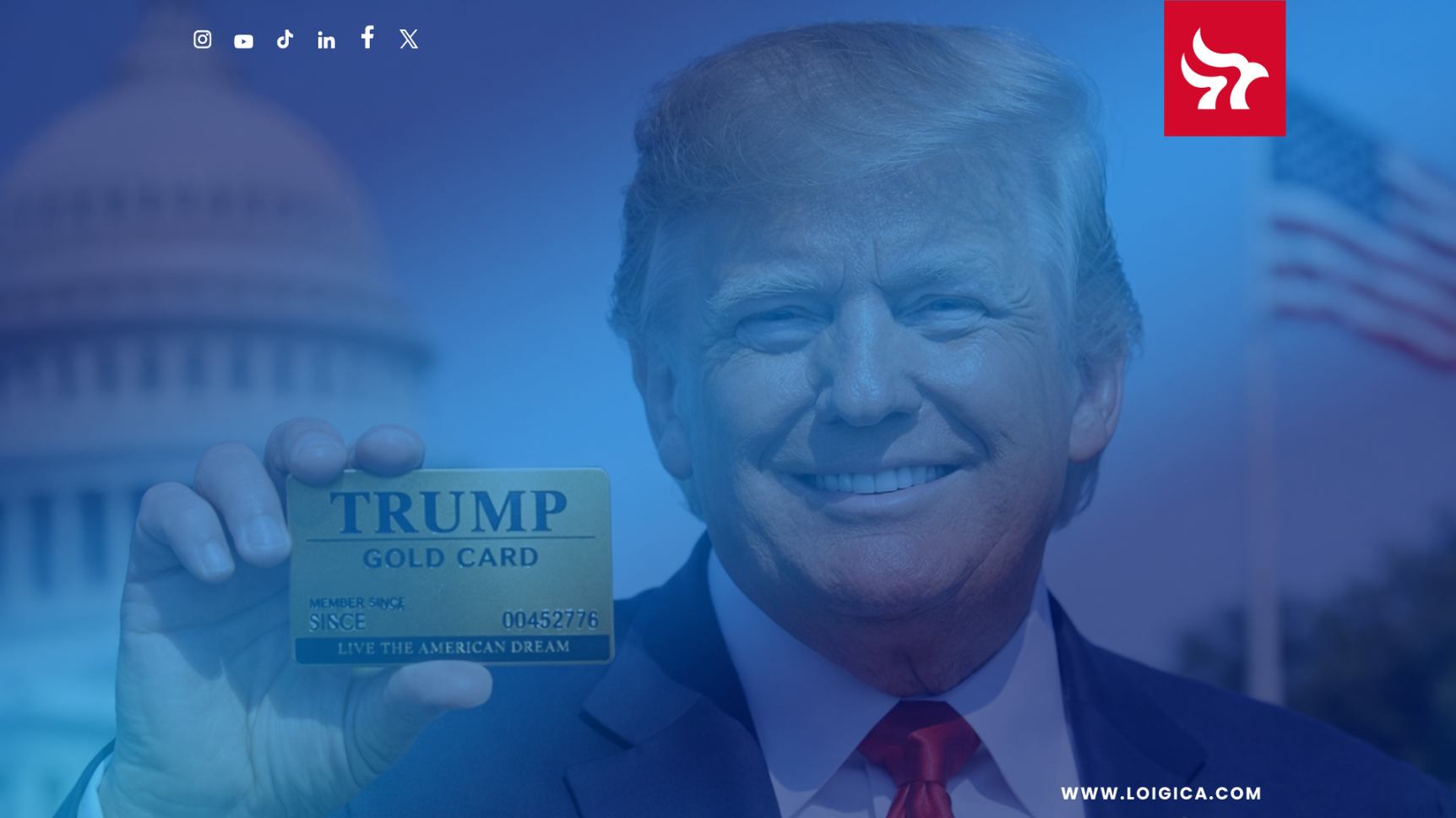
Gold Card for high net worth Latin Americans: decisions beyond the first million dollars
